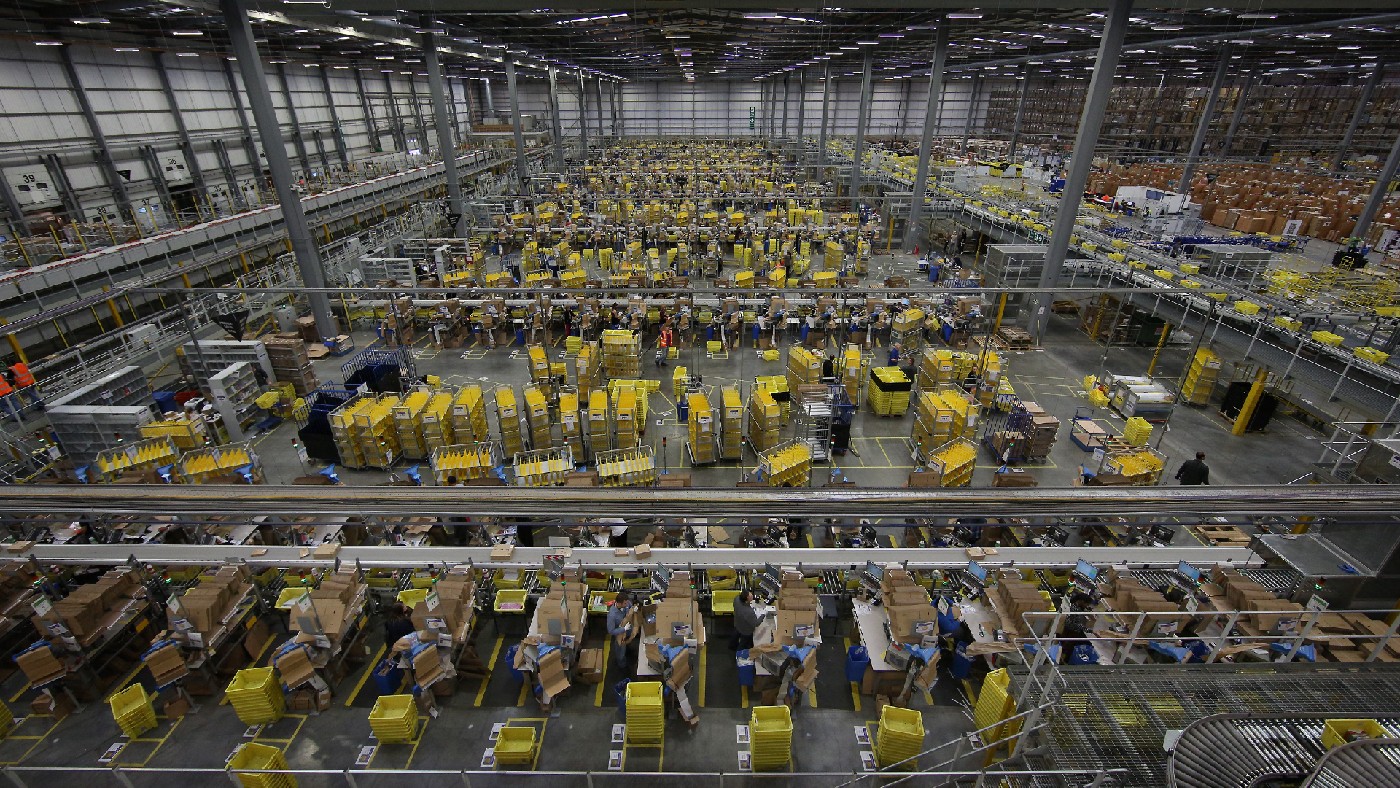Unions of all kinds are flexing their muscles. Should we be celebrating?
New Unite union boss Sharon Graham has promised to make every UK workplace ‘action ready’ and vowed to take on Amazon

A free daily email with the biggest news stories of the day – and the best features from TheWeek.com
You are now subscribed
Your newsletter sign-up was successful
The new boss of Britain’s second-largest union is barely a week into the job but already ruffling feathers, said Henry Bodkin in The Daily Telegraph. Sharon Graham of Unite has promised to escalate the use of controversial “leverage tactics” – protests and social media campaigns targeting companies, their senior managers and investors – and to make every UK workplace “action ready”.
The former waitress has form: she previously ran Unite’s “organising and leverage department”. She’s also unafraid to go after the big boys, said Michael Savage in The Observer – she is plotting an international campaign to unionise Amazon’s warehouses. In her manifesto, Graham lambasted what she described as “an increasingly passive tendency within the union”. Safe to say, those days are over.
Cometh the hour, cometh the woman, said Maggie Pagano in The Mail on Sunday. “For the past four decades, employers have been in the driving seat.” Now there are signs at last of “a structural reversal” in power “away from employers to employees”. You can see traces of it throughout the economy: from high finance – where Goldman Sachs is offering graduates starting packages of £100,000 in the UK – to the haulage, food and manufacturing industries.
The Week
Escape your echo chamber. Get the facts behind the news, plus analysis from multiple perspectives.

Sign up for The Week's Free Newsletters
From our morning news briefing to a weekly Good News Newsletter, get the best of The Week delivered directly to your inbox.
From our morning news briefing to a weekly Good News Newsletter, get the best of The Week delivered directly to your inbox.
While some of this largesse is doubtless related to pandemic labour shortages, economists point to more permanent trends, such as changes to migration patterns in Britain. The number of foreign nationals working in the UK jumped from 1.06 million to 3.75 million in the 20 years before Brexit. Much of that workforce has now been depleted – and wages are rising. “It’s often difficult to detect seismic shifts in economic history”, but we may be witnessing one. “About time too.”
In recent decades, Britain’s “deeply flawed” labour market has been shaped by the “cost-cutting demands” of those, such as supermarkets, “at the top of the supply chain”, said James Moore in The Independent. Unions now at last have a chance to redress the balance.
Be careful what you wish for, said Matthew Lynn in The Daily Telegraph. The new breed of “woke” unions is very different from the movement that dominated the 20th century, and “a far bigger threat to companies”.
Traditional unions had a set of clear, defined demands: better pay, worker protections, and so on. The new “Generation Z” sort now proliferating in the US and beyond are interested in “values”, “social justice” and “equality”. There’s little room for compromise; “they promise only permanent cultural warfare”. They might be small right now, but they represent “the biggest threat business has faced in a generation”.
A free daily email with the biggest news stories of the day – and the best features from TheWeek.com
-
 6 of the world’s most accessible destinations
6 of the world’s most accessible destinationsThe Week Recommends Experience all of Berlin, Singapore and Sydney
-
 How the FCC’s ‘equal time’ rule works
How the FCC’s ‘equal time’ rule worksIn the Spotlight The law is at the heart of the Colbert-CBS conflict
-
 What is the endgame in the DHS shutdown?
What is the endgame in the DHS shutdown?Today’s Big Question Democrats want to rein in ICE’s immigration crackdown
-
 Currencies: Why Trump wants a weak dollar
Currencies: Why Trump wants a weak dollarFeature The dollar has fallen 12% since Trump took office
-
 Elon Musk’s starry mega-merger
Elon Musk’s starry mega-mergerTalking Point SpaceX founder is promising investors a rocket trip to the future – and a sprawling conglomerate to boot
-
 TikTok: New owners, same risks
TikTok: New owners, same risksFeature What are Larry Ellison’s plans for TikTok US?
-
 Will SpaceX, OpenAI and Anthropic make 2026 the year of mega tech listings?
Will SpaceX, OpenAI and Anthropic make 2026 the year of mega tech listings?In Depth SpaceX float may come as soon as this year, and would be the largest IPO in history
-
 Leadership: A conspicuous silence from CEOs
Leadership: A conspicuous silence from CEOsFeature CEOs were more vocal during Trump’s first term
-
 Ryanair/SpaceX: could Musk really buy the airline?
Ryanair/SpaceX: could Musk really buy the airline?Talking Point Irish budget carrier has become embroiled in unlikely feud with the world’s wealthiest man
-
 Powell: The Fed’s last hope?
Powell: The Fed’s last hope?Feature Federal Reserve Chairman Jerome Powell fights back against President Trump's claims
-
 Taxes: It’s California vs. the billionaires
Taxes: It’s California vs. the billionairesFeature Larry Page and Peter Thiel may take their wealth elsewhere